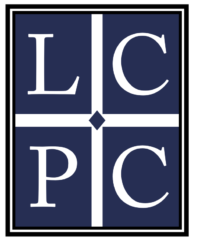Back To Pain Management Services
Neck Pain
overview
causes
symptoms
Treatment
Reviews
Overview
Neck pain is common. Poor posture — whether from leaning over a computer or hunching over a workbench — strains neck muscles. Osteoarthritis also is a common cause of neck pain.
Rarely, neck pain can be a symptom of a more serious problem. Seek medical care for neck pain with numbness or loss of strength in the arms or hands or for pain that shoots into a shoulder or down an arm.
Causes
Because the neck supports the weight of the head, it can be at risk of injuries and conditions that cause pain and restrict motion. Neck pain causes include:
- Muscle strains. Overuse, such as too many hours hunched over a computer or a smartphone, often triggers muscle strains. Even minor things, such as reading in bed, can strain neck muscles.
- Worn joints. As with other joints in the body, neck joints tend to wear with age. In response to this wear and tear, the body often forms bone spurs that can affect joint motion and cause pain.
- Nerve compression. Herniated disks or bone spurs in the vertebrae of the neck can press on the nerves branching out from the spinal cord.
- Injuries. Rear-end auto collisions often result in whiplash injury. This occurs when the head jerks backward and then forward, straining the soft tissues of the neck.
- Diseases. Certain diseases, such as rheumatoid arthritis, meningitis or cancer, can cause neck pain.
Symptoms
Symptoms include:
- Pain that’s often worsened by holding the head in one place for long periods, such as when driving or working at a computer
- Muscle tightness and spasms
- Decreased ability to move the head
- Headache

Treatment
Pain relievers might include nonsteroidal anti-inflammatory drugs (NSAIDs), such as ibuprofen (Advil, Motrin IB, others) or naproxen sodium (Aleve), or acetaminophen (Tylenol, others). Take these medications only as directed. Overuse can cause serious side effects.
If pain relievers you can buy without a prescription don’t help, your health care provider might suggest prescription NSAIDs or muscle relaxers.
- Physical therapy. A physical therapist can teach correct posture, alignment and neck-strengthening exercises. Physical therapy might also involve the use of heat, ice and other measures to help ease pain.
- Transcutaneous electrical nerve stimulation (TENS). Electrodes placed on the skin near the painful areas deliver tiny electrical impulses that may relieve pain. However, there’s little evidence that TENS works for neck pain.
- Soft neck collar. A soft collar that supports the neck may help relieve pain by taking pressure off the neck. However, if used for more than three hours at a time or for more than 1 to 2 weeks, a collar might do more harm than good.
- Steroid injections. A health care provider might inject steroid medications near the nerve roots, into the spinal joints or into the muscles in the neck. Numbing medications, such as lidocaine, also can be injected to relieve neck pain.
- Surgery. Rarely needed for neck pain, surgery might be an option for relieving nerve root or spinal cord compression.
Reviews on our treatments
“I was looking for a Social Media Course to expand my career horizon. A friend of mine suggested to learn from Steve’s online courses and it really worked for me.”

Flora BakerNew York
“A fantastic and very engaging course. All of the information offered by Steve was completely practical, relevant and presented in an easy, digestible and interesting way.”

Glen StephensLondon
“This course was a breakthrough in my knowledge of digital marketing. The content is comprehensive and of great quality, engaging and interactive.”

Terry HigginsBerlin
Previous
Next

